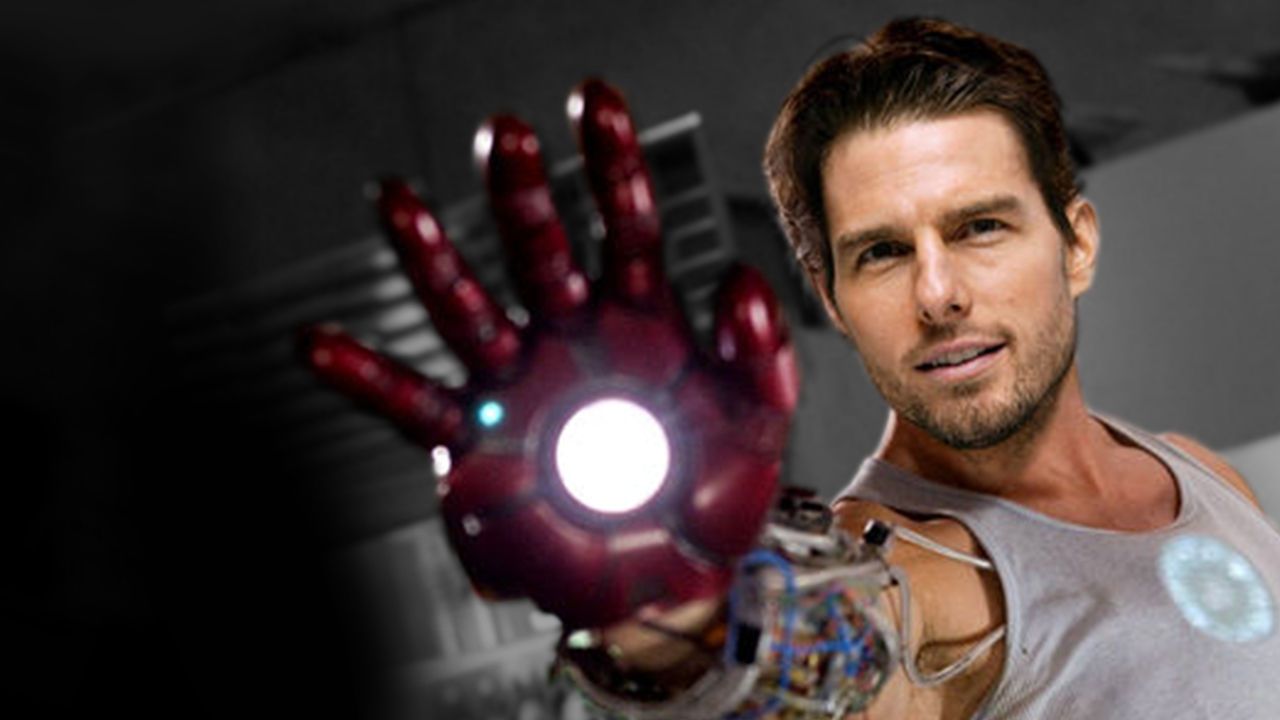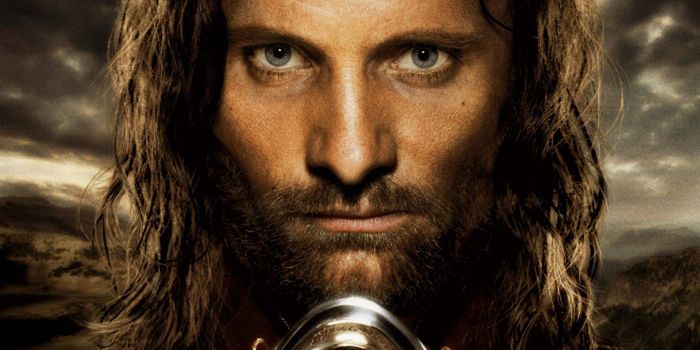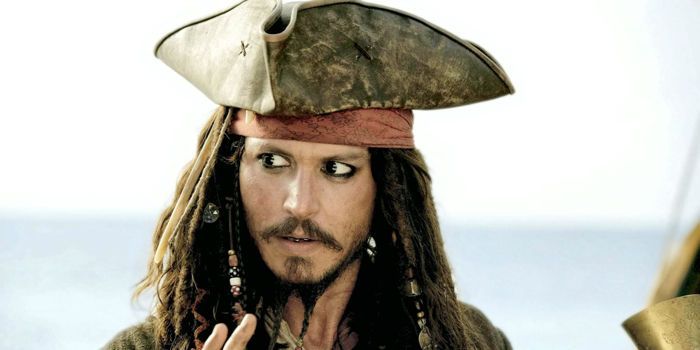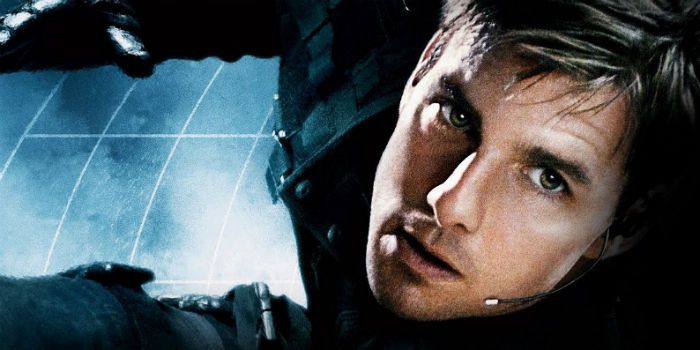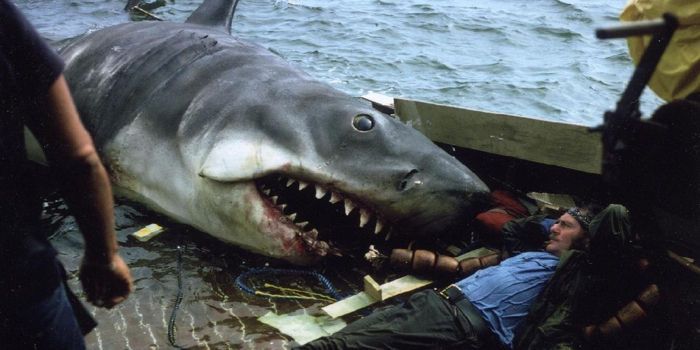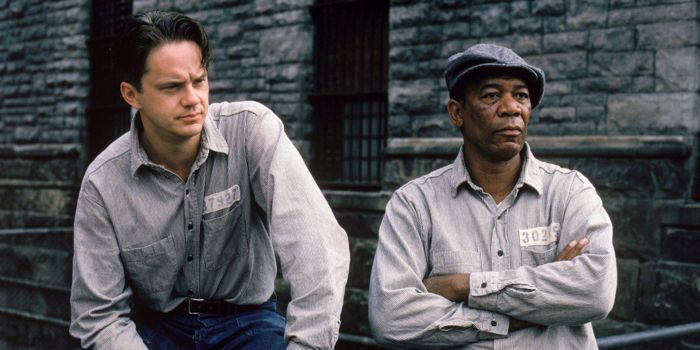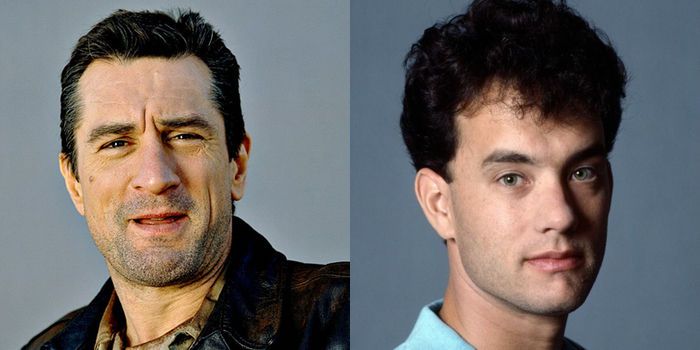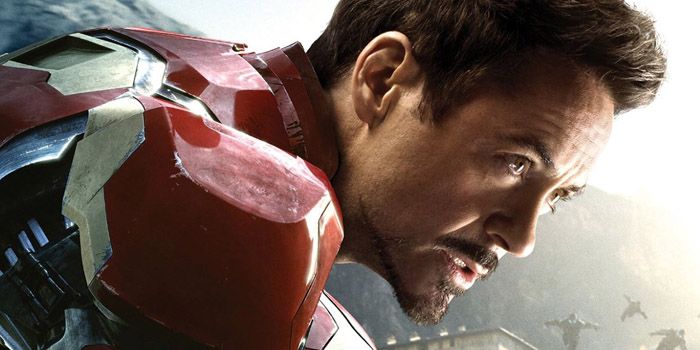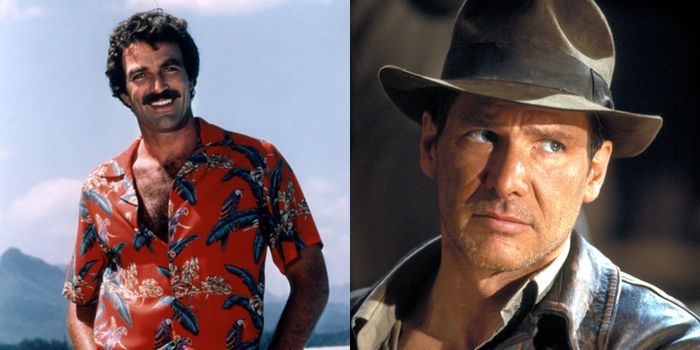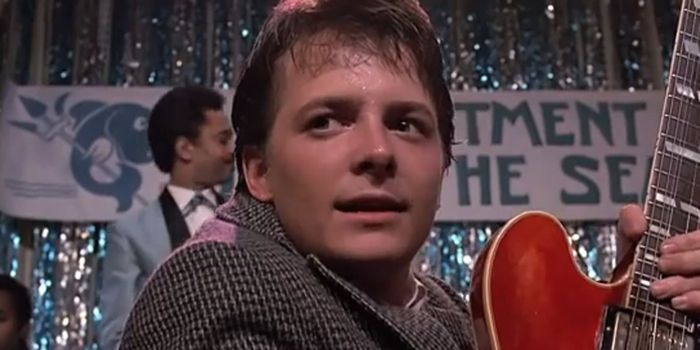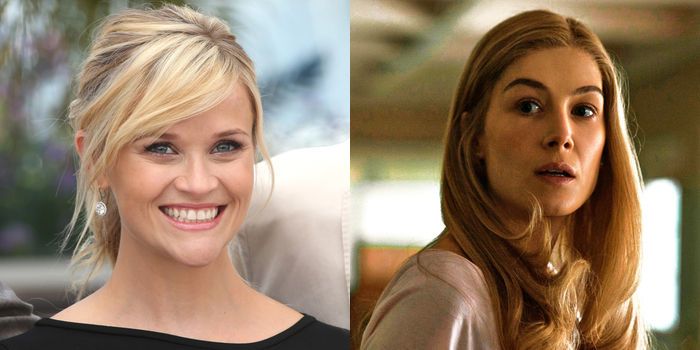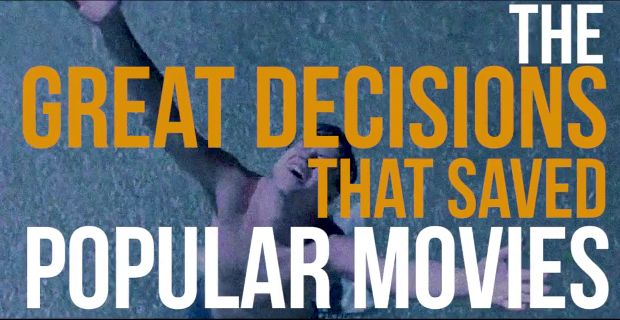Be sure to subscribe to the Screen Rant YouTube Page!
-
When working on a film, a director has hundreds of decisions to make on a daily basis. Whether it’s shot composition, lighting levels, musical selections, or last-minute revisions to the screenplay, they are constantly searching for ways to ensure that the final product can live up to his or her standards. As such, making a movie turns into a high stakes game of “what if?” where even the smallest of moves can have a drastic impact on how everything will turn out.
But before a filmmaker begins to worry about the technical details of their film, they have bigger decisions to make. Is this actor right for the part? How should we deal with this faulty prop? Am I the right director for this film? The answers to these questions have the potential to alter Hollywood history, perhaps for the better, and have on several occasions. Screen Rant presents 10 Great Decisions That Saved Popular Movies.
-
Stuart Townsend is NOT Precious (Or Aragorn)
Initially, League of Extraordinary Gentlemen star Stuart Townsend was hired to portray Aragorn in the Lord of the Rings trilogy. However, the day before principal photography commenced in 1999, director Peter Jackson replaced him with Viggo Mortensen, believing that he was a better fit for the part of the Ranger of the North.
Much to Townsend’s chagrin, Jackson’s instincts proved right. Mortensen went on to become a fan favorite as Aragorn, injecting the character with the right amounts of hardened tenacity, experience, and compassion that made him such a memorable and iconic part of the franchise. It’s hard to envision any other actor giving the rising pre-battle speech at the end of Return of the King, which culminated Aragorn’s arc in inspiring fashion and cemented his place as a leader among men.
-
Depp’s Pirate Dance
Johnny Depp is known today for portraying characters with eccentric tendencies, which in recent years has been criticized as a detriment of his career choices. This all started when he signed on to play Captain Jack Sparrow in Disney's mega-successful Pirates of the Caribbean franchise, but before audiences got a taste of the actor's weirdo shtick, studio executives weren't sure it could work and tried to encourage Deep to abandon the technique.
During a table read for The Curse of the Black Pearl in 2002, Depp presented Sparrow as the way moviegoers know and love him, but Disney studio heads told him to stop, fearing he was going to ruin their major investment. The actor gave them an ultimatum (“trust me or fire me”), and cooler heads obviously prevailed. Sparrow became one of the most famous movie characters of the 21st century thanks to Depp’s talents, and the leading man even earned an Oscar nomination for his troubles.
-
Carnahan
Before 2006’s Mission: Impossible III, the action franchise was floundering, a result of the poor reception its predecessor received. With a return to form so desperately needed, it is somewhat surprising that then untested filmmaker Joe Carnahan (The Grey) was trusted with the tentpole. However, he didn’t stay on board for long, as he had disagreements with Paramount regarding the tone of the film and vacated the director’s chair.
The team found their replacement thanks to Tom Cruise’s choice of TV shows. After binge watching the first two seasons of Alias, the actor determined that J.J. Abrams was the right man for the job, which led to tremendous results. Infusing the franchise with his trademark fast-paced, exciting brand of directing, Abrams reinvigorated the property with thrilling set pieces and an emotionally charged narrative. The M:I series has called Abrams’ Bad Robot home ever since, with 2011’s Ghost Protocol becoming the highest-grossing installment of the franchise.
-
Shark Tank’d
Steven Spielberg’s Jaws is widely considered to be one of the greatest movies ever made, with much credit being given to its intense and thrilling sequences of suspense. One of the film's most noteworthy aspects is that the shark remains unseen for the first half of the film, showing audiences shots of swimmers being attacked by a seemingly invisible presence, which upped the horror levels to 11 and created striking imagery that caused many to have second thoughts about jumping in the water for a dip.
This all happened because of a happy accident. The crew infamously experienced major problems with the mechanical shark, watching one model sink to the bottom of the ocean along with many other malfunctions. In an effort to save the project, Spielberg went back to the works of Alfred Hitchcock, and found a way to tell the story without featuring the shark until he absolutely had to. One viewing of the final product, many would agree this was better than the alternative – hiring a shark trainer and using a real shark for the scenes.
-
Shawshank’s Redemption
Director Rob Reiner has had phenomenal success adapting Stephen King stories to the big screen, most notably with the 1986 classic Stand By Me. So it shouldn’t come as any surprise that he felt he was the right choice to bring The Shawshank Redemption to life, offering writer/director Frank Darabont $2.5 million to take the project over. Obviously, Darabont refused, saying it was his turn to do something great, and went on to make one of the most beloved movies of all-time.
It’s hard to say that Shawshank was “saved” from Reiner, since the filmmaker had put together an impressive résumé up to that point, but it is difficult to argue with the results. Shawshank scored seven Oscar nominations, including Best Picture and Best Adapted Screenplay (for Darabont’s script). Darabont’s casting choices (which would have been different under Reiner) also paid off, as Morgan Freeman delivered a career-defining performance as Red, and Tim Robbins perfectly personified Andy Dufrense.
____________________________________
NEXT PAGE: 5 More Great Decisions...
____________________________________
-
Robert De Niro is ‘Big’
Aiming to take a break from heavy dramas like Taxi Driver and Raging Bull, Robert De Niro was looking to make a comedy for his next film. He was approached by Penny Marshall to play Josh Baskin in Big, where De Niro would portray the “adult” version of the kid who yearns to be a grown-up. However, a salary disagreement intervened, opening the door for first-choice Tom Hanks to take on the role once his busy schedule cleared up.
As great as he is, it’s hard to see De Niro’s tough guy persona adapting to the youthful exuberance of Baskin, a trait that fit Hanks like a glove. Hanks effortlessly sold audiences on the tricky concept, expertly portraying a kid thrown out of his comfort zone and earning an Oscar nod for the part. And ultimately, De Niro got to scratch his comedy itch with a project that was more suitable for his gifts – starring as no-nonsense bounty hunter Jack Walsh in the successful Midnight Run, released the same year as Big.
-
RDJ is A-OK (and Iron Man)
Robert Downey, Jr. is the undisputed poster boy of the Marvel Cinematic Universe, becoming synonymous with his Tony Stark character ever since the first Iron Man film came out in 2008. As ludicrous as it may be now, Marvel Studios, who feared that he might not be seriously committed to the part as he was on the career comeback trail, saw RDJ as a big gamble when first casting the role. Despite director Jon Favreau vouching for Downey, the studio attempted to go in a different direction.
Tom Cruise was one of the names considered, and the A-lister was interested in making the film as far back as 2004. But when it struggled to get off the ground, he moved to Steven Spielberg’s War of the Worlds adaptation, giving way for Favreau and Downey to work their magic and usher in a new era of superhero films. Cruise certainly has his supporters, but it’s hard to see him capturing the incessant snarkiness that defines Stark in the way RDJ was able to, which made the latter an instant Comic-Con icon.
-
Tom Selleck: Indiana Jones
After working with Harrison Ford on numerous occasions, including the popular American Graffiti and Star Wars, George Lucas wished to avoid hiring the actor again, fearing that Ford would become his “Bobby De Niro” (a reference to Martin Scorsese’s frequent collaborator). When making Raiders of the Lost Ark, the producer cast Tom Selleck in the role of Indiana Jones, going as far as saying that he couldn’t see anyone else in the part. However, Lucas’ friend (and the film’s director), Steven Spielberg could.
Selleck was forced to drop out once his TV series Magnum: P.I. took off, and with three weeks to go before filming, Lucas had to find a replacement quick. Spielberg suggested Ford, and the rest is movie history. Nowadays, it’s hard to see anyone other than Ford as the famous archeologist, as the actor’s roguish charm and likable screen presence carried over well from Han Solo, giving audiences a vulnerable, unforgettable action hero that we all loved rooting for.
-
Back to Stoltz’ Future
When working on Back to the Future, Robert Zemeckis’ first pick for Marty McFly was Michael J. Fox. Unfortunately, the actor had a key part in the TV series Family Ties, and the network did not allow Fox to take a break from the show, since they felt he was a big factor in its success. Forced to go another route, Zemeckis went with Eric Stoltz and began rolling his cameras.
A month into production, Zemeckis had determined that Stolz was “too humorless” (a verdict Stoltz agreed with) and replaced him with Fox. Luckily, the actor possessed great time management skills and he was able to balance his Family Ties commitments with the Back to the Future shooting schedule. Producers felt Fox’s personality was more in line with the vision for McFly, and they were right to make this move. Even though it added to the budget, its box office gross more than covered the additional costs, and Fox made Marty one of cinema’s greatest characters with his comedic timing and sharp wit.
-
Get Gone Girl, Witherspoon
Reese Witherspoon is seen by many as one of America’s sweethearts, injecting her roles with some old-fashioned, good girl charm that make her irresistible on-screen. As such, you’d be hard-pressed to buy her as a manipulating psychopath putting on a façade for her man, but that’s what would have happened if she got her way on last year’s massive hit, Gone Girl.
Witherspoon acquired the film rights to Gillian Flynn’s novel, with the intention of playing Amy Dunne. However, when director David Fincher came on board, he felt it would better serve the film if the part went to someone else, explaining to Witherspoon why she wasn’t right for Amy. Fincher’s intuition came through, with Rosamund Pike’s icy coldness keeping audiences on the edge of their seats and earning the actress a Best Actress nomination. Pike’s status as a relative unknown played to her benefit, as she was able to seamlessly transform into the conniving Amy in a way the established Witherspoon may have struggled with.
Things turned out OK for Reese too. She made Wild and earned an Oscar nod as well.
-
Conclusion
It’s fascinating for film fans to think about how some of their favorite movies would have been different if these decisions were not made. Would a mustached Indiana Jones reach the pantheon of action greats? Would Jaws be as scary if we saw the shark from the get-go? Could Back to the Future top the box office charts with a “humorless” Marty McFly as its protagonist? Fortunately for us, these questions are merely interesting food for thought instead of hard realities we would have to deal with if some directors went other ways. After all, you don’t mess with classics.
Of course, this list is not meant to be all-inclusive, so be sure to share some of your favorite history-making decisions in the comments section below. Whether it’s a near casting miss (Leonardo DiCaprio as Anakin Skywalker) or something more behind-the-scenes (Lucas going outside the studio system and making Star Wars as an independent film), the world of cinema is full of interesting scenarios that could have drastically changed the industry as we know it today.

